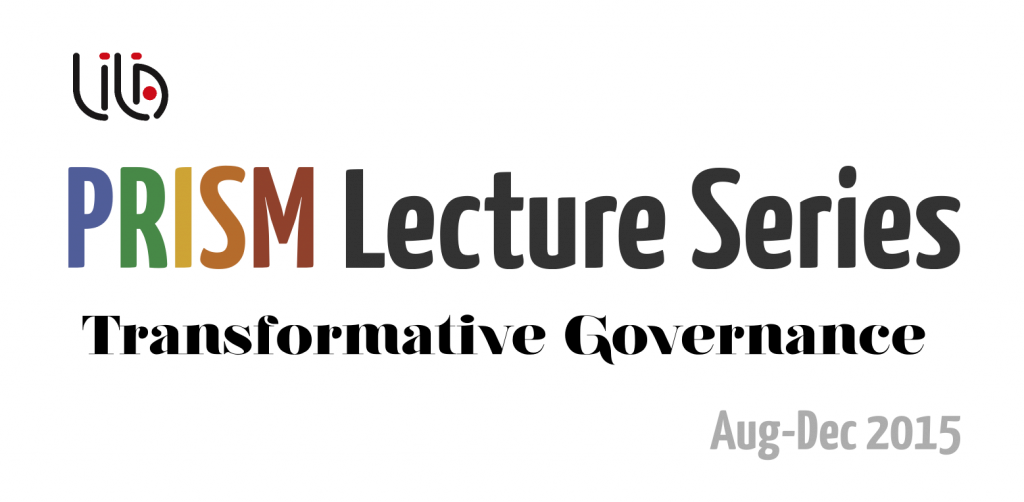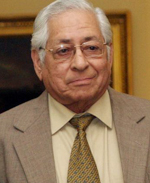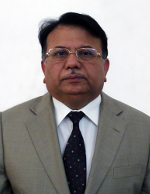
 |
Pre-Requisites of Good GovernanceSoli SorabjeeChair: Ajit Prakash Shah |
|||
Thu. 10 September – 6:30pm | Seminar II & III – India International Centre, New Delhi‘Governance’ is a qualitative expression, a normative concept, and is different from ‘government’. One of the prerequisites of good governance is giving a party against whom an adverse order is likely to be passed an opportunity of having his or her say. Principles of fairplay and natural justice also require that a person affected by an adverse order should know the reasons for the adverse decision. Here, what is required is a brief statement of reasons for the decision, which would act as a check on possible arbitrary action. The lecture argues that secrecy is the main bulwark of inefficient and corrupt administration. Disclosure of reasons makes a wholesome dent in the veil of secrecy, while sunlight serves as a good disinfectant. The effort should be to spread sunlight in all spheres of administration and thereby ensure good governance in our democratic polity.Soli Jehangir Sorabjee started legal practice in 1953. He was designated as Senior Advocate, Supreme Court of India, in 1971. He was Solicitor General of India from 1977-1979. He served as Attorney General of India, 1989-1990, and again in 1998- 2004. He was appointed in June 2000 as a Member of the Permanent Court of Arbitration at Hague for six years. He was a Member of the UN Sub-Commission on Promotion and Protection of Human Rights for four years from April 2002, and got unanimously elected in July 2004 as Chairperson of the 56th Session of the UN Sub-Commission. Soli Sorabjee has appeared in important cases in the Supreme Court of India and writes a regular fortnightly column in a national daily.
|
||||


 Ajit Prakash Shah will chair the evening and moderate the discussion. AP Shah was appointed as the Judge of Bombay High Court in 1992 and was later elevated to the office of Chief Justice Madras High Court and on transfer took over as Chief Justice, Delhi High Court on 11 May 2008 till his retirement. He has delivered some important judgments, ranging on diverse issues such as: Application of the Right to Information Act to the office of the Chief Justice of India; Decriminalisation of homosexuality; Freedom of Speech and Expression; Environment and Ecological matters; Protection of disabled person; Laws relating to women; Contract Labour; Child Labour; Employment Rights of HIV affected persons. As a judge of the Bombay High Court and later Madras and Delhi High Courts, he had also dealt with large numbers of commercial cases, including admiralty, company law, trademark and patent laws, arbitration, etc. After retirement, he was appointed as the Chairperson of the Broadcasting Content Complaints Council (BCCC), a self-regulatory body appointed by the Indian Broadcasting Foundation. He also headed a Committee appointed by the Ministry in Planning Commission for drafting Privacy Law and Data Protection Law. He is a Member of the Governing Council appointed by the Ministry of Law & Justice for Judicial Reforms. He is nominated as member in the Expert Committee of International Labour Organisation for the implementation of ILO Conventions by member countries. He is a Commissioner in the International Commission of Jurists. He is currently the Chairman of the Law Commission of India.
Ajit Prakash Shah will chair the evening and moderate the discussion. AP Shah was appointed as the Judge of Bombay High Court in 1992 and was later elevated to the office of Chief Justice Madras High Court and on transfer took over as Chief Justice, Delhi High Court on 11 May 2008 till his retirement. He has delivered some important judgments, ranging on diverse issues such as: Application of the Right to Information Act to the office of the Chief Justice of India; Decriminalisation of homosexuality; Freedom of Speech and Expression; Environment and Ecological matters; Protection of disabled person; Laws relating to women; Contract Labour; Child Labour; Employment Rights of HIV affected persons. As a judge of the Bombay High Court and later Madras and Delhi High Courts, he had also dealt with large numbers of commercial cases, including admiralty, company law, trademark and patent laws, arbitration, etc. After retirement, he was appointed as the Chairperson of the Broadcasting Content Complaints Council (BCCC), a self-regulatory body appointed by the Indian Broadcasting Foundation. He also headed a Committee appointed by the Ministry in Planning Commission for drafting Privacy Law and Data Protection Law. He is a Member of the Governing Council appointed by the Ministry of Law & Justice for Judicial Reforms. He is nominated as member in the Expert Committee of International Labour Organisation for the implementation of ILO Conventions by member countries. He is a Commissioner in the International Commission of Jurists. He is currently the Chairman of the Law Commission of India.